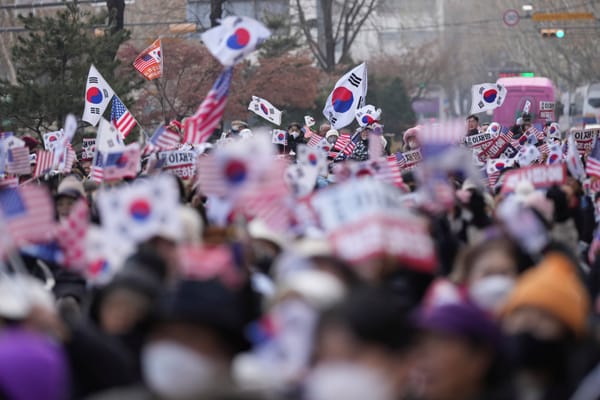When South Korean President Yoon Suk Yeol appeared on TV on Dec. 3, 2024, to declare “emergency martial law,” one might have thought it was part of a second-rate Netflix production. The president explained the anti-democratic decision as a necessary measure to protect democracy, specifically against “anti-state activities” from domestic political opponents in league with North Korea. Just six hours later, at 4:30 a.m. on Dec. 4, the martial law was lifted when parliament defied troops stationed outside the government building and convened to vote against it.
This event marked the beginning of a bewildering sequence of political developments, which can be summarized as follows: President Yoon was impeached, suspended, and replaced by Prime Minister Han Duck-soo, who also belongs to the ruling People Power Party; a handful of military officers involved in the botched putsch were arrested; two weeks later, Han was also impeached and replaced by Finance Minister Choi Sang-mok; and on Jan. 14, the Constitutional Court held its first hearing against Yoon, who failed to turn up; the next day, Yoon was arrested.
This unprecedented political chaos has been compounded by a national tragedy. On Dec. 29, the Jeju Air Boeing 737-800 crashed at Muan International Airport, resulting in the loss of 179 lives—the deadliest aviation disaster in the nation’s history.
To understand the remarkable string of events flowing out of South Korea, we need to look beyond that country for answers. In recent years, we have witnessed an escalation of tensions between the West, led by the United States, and a rival multipolar order that is attempting to challenge US dollar-based hegemony. Clear indicators of growing instability are the “forever wars” at the Eastern periphery of the empire; a global “energy warfare” in which Europe seems to have embraced the role of sacrificial lamb by completely renouncing Russian natural gas; and extraordinary political events like the Dec. 6 judicial coup that reversed the outcome of presidential elections in Romania (a European Union member state).
